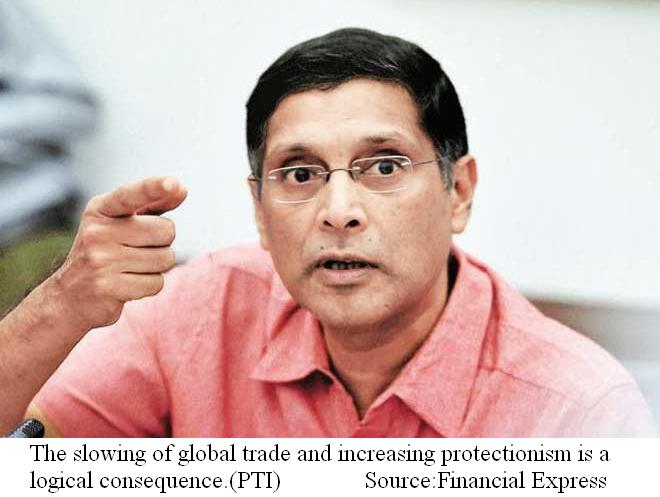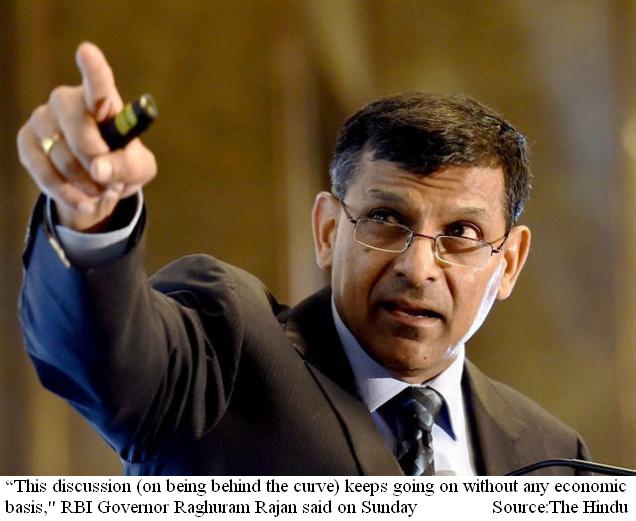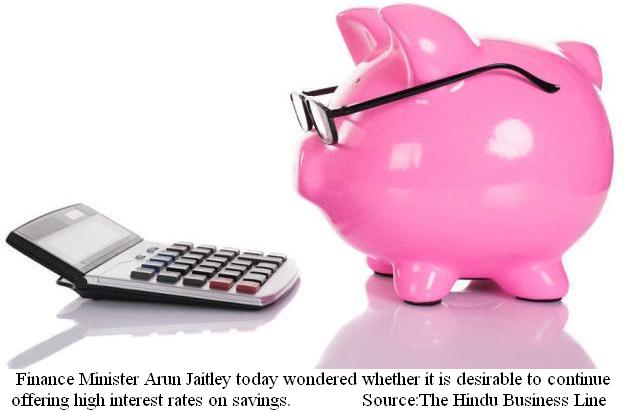|
||||||||
|
|
|
2016-07-29 ArtNo.45808
◆Why a slowing west means a dramatic shift in India’s strategy
 【New Delhi】Though Brexit is the latest threat to globalisation, as chief economic advisor (CEA) Arvind Subramanian pointed out at the India Policy Forum Lecture on Tuesday, the seeds of the destruction of the era of hyper-globalisation—exports-to-GDP rose to over 25% in 2008 as compared to 18% in the 1980s boom—lay in the fact that this phase coincided with what he called the weakening West and the rising rest. Between 2005 and 2014, the latest McKinsey report points out, real incomes in advanced economies were either flat or fell for 65-70% of the population while they rose for all but 2% of the population in these countries in the 1993-2005 period. The slowing of global trade and increasing protectionism is a logical consequence. In the glory days of 2004-07, when global GDP was growing at 5% per annum, global exports grew at 9-10%—by contrast, they contracted 13% in 2015; in volume terms, the growth was a mere 2.8%. Subramanian's tentative conclusion that, while deeper integration of the EU-type is under siege, shallower globalisation of trade and capital flows would continue, needs to be validated by actual experience. Nonetheless, there are important policy implications of the new global order. ○Show me how inflation is low: Rajan on 'dialogues' by critics  【Mumbai】Taking his critics head-on, RBI Governor Raghuram Rajan has challenged them to show how inflation is “very low” before accusing him of “being behind the curve” in his focus on containing price rise than on growth and debunked such criticism as mere ‘dialogues’. Mr. Rajan, who has often been seen as being critical of the government and its policies, also said there is “lot of frustration” about the pace of economic recovery, but attributed it to the two successive droughts, weak global economy and external shocks like Brexit. Given these constraints, performance of Indian economy has been “quite creditable” and prospects of good monsoon as well as structural reforms and macroeconomic stability will accelerate the growth going forward, he added. ○Jaitley questions high interest rates on savings  【New Delhi】With private investment yet to pick up, Finance Minister Arun Jaitley on the 9th of July wondered whether it is desirable to continue offering high interest rates on savings that translate into higher cost of lending and sluggishness in the economy. Speaking at a function here to unveil a commemorative postage stamp to mark 140 years of Bombay Stock Exchange, India, he said, has “peculiar” characteristics of having “quite high” percentage of domestic savings. "Now, whether domestic savings are only to be used by such instruments which give you a higher return and create an interest regime which is extremely costly and makes the economy sluggish, or higher returns are to be got from such instruments as funds, bonds, shares (that finance projects and economic activity)," he asked. 【News source】 Why a slowing west means a dramatic shift in India’s strategy Show me how inflation is low: Raghuram Rajan on ‘dialogues’ by critics Show me how inflation is low: Rajan on 'dialogues' by critics Jaitley questions high interest rates on savings ○One world: The aim of SEAnews ◆Recruitment of Ad-SEAnews CanvassersYour Comments / UnsubscribeSEAnews MessengerSEAnewsFacebookSEAnewsGoogleSEAnews eBookstoreSEAnews eBookstore(GoogleJ)SEAnews world circulation |
|
[Your Comments / Unsubscribe]/[您的意见/退订]/[ご意見/配信停止]
Please do not directly reply to the e-mail address which is used for delivering the newsletter. 请别用递送新闻的邮件地址而直接回信。 メールをお届けした送信専用アドレスには返信しないで下さい。 |